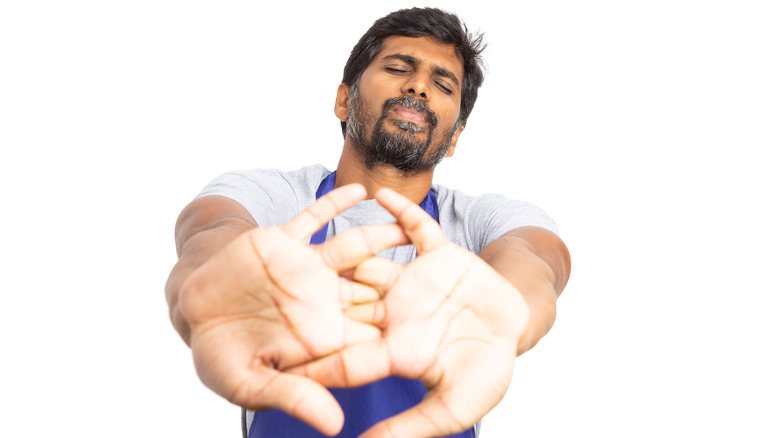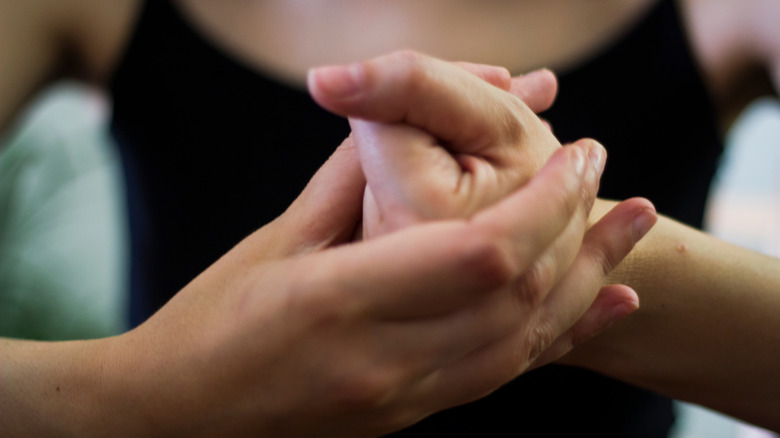The Real Reason Not Everyone Can Crack Their Knuckles
A movie character cracking their knuckles typically means they're ready for action. Makes sense, given that the movement gives your fingers and joints a stretch and leaves you with a feeling of relief. For some people, an audible "pop" happens and adds to the satisfaction. But for others, pulling and bending the fingers doesn't produce any popping sound at all. What is exactly happening when we crack our knuckles, and why doesn't everyone experience that loud "snap" and "crack" that some of us do?
"When you crack your knuckles, you're basically releasing air out of the joints," says Dr. Mala Kaul, a rheumatologist at Piedmont Healthcare. What allows our fingers to move about freely is the synovial fluid between our finger joints that acts as protective padding. When you crack your knuckles, the audible pop is caused by the collapse of air bubbles that form in this fluid. Another possibility for the audible popping is the rapid separation of the joint and bubble formation, rather than bubble collapse (via The Guardian).
Does cracking your knuckles have health risks?
"Some people cannot crack their knuckles because the spacing between their knuckles is too large for this to happen," Professor Abdul Barakat of the Ecole Polytechnique's hydrodynamics laboratory told The Guardian. But, if you can and like it, Barakat says, "The more rapidly you pull on your knuckle, the faster you are changing the pressure and therefore the more likely you are to generate a knuckle crack."
Maybe you're able to crack your knuckles, but are afraid to do it, worried it can cause arthritis. Orthopaedic surgeon and co-director of the Joint Replacement Program Dr. Robert Klapper tells Cedars-Sinai that this is a misconception. "Cracking your knuckles does no harm at all to our joints. It does not lead to arthritis," he states. However, Dr. Klapper does caution that if you experience pain when cracking your knuckles, you should stop. Pain could be an indication of an underlying health condition or pre-existing damage to the area. Placing additional pressure on the knuckles may exacerbate the pain.


